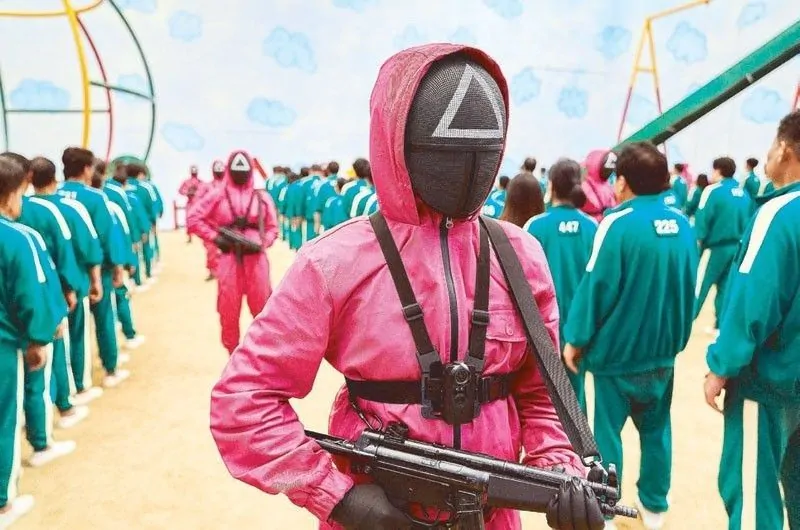
Surviving the Squid Game: Fans Celebrate 4 Years of Deadly
- Thousands of fans gathered in Seoul to celebrate the final season of "Squid Game"
- The series sees desperate people competing in deadly versions of traditional children’s games for a cash prize
- Director Hwang Dong-hyuk poured everything into the series which launched four years ago
- Fans dressed in show uniforms and carried oversize toys from the games
- The show reflects many aspects of real life and has become a cultural phenomenon
- The first two seasons were among Netflix’s most-watched shows
- The final season follows the hero Gi-hun as he returns to dismantle the games from within
- "Squid Game" is considered one of the most powerful examples of South Korea’s rise as a global cultural force along with "Parasite" and BTS
Thousands of fans gathered in Seoul on Saturday to celebrate the final season of “Squid Game,” a global Netflix hit that has become a symbol of South Korea’s cultural influence. The series, which sees desperate individuals competing in deadly versions of traditional children’s games for a huge cash prize, has captivated audiences worldwide since its launch nearly four years ago.
Director Hwang Dong-hyuk, who poured his heart and soul into the series, expressed mixed emotions about its ending. “So while it’s sentimental to see it end,” he said, “there’s also a sense of relief.”
Fans congregated near Seoul’s Gyeongbokgung Palace, adorned in the bright pink uniforms worn by the show’s enigmatic masked agents. They marched through the streets carrying oversized toys from the games featured in the series, waving the show’s flag proudly.
One devoted fan, Park Sang-gyu, who stayed up all night to binge-watch the final season, shared his thoughts on the dystopian drama. “Ultimately, it’s a story about people,” he said. “As you watch, you realize it’s not just about the games—it reflects many aspects of real life.”
The Seoul Metropolitan Library was illuminated with key scenes from the series, including the imposing Young-hee—an animatronic doll from one of the brutal games. Lee Byung-hun, who portrayed the masked Front Man overseeing the competition, described “Squid Game” as a cultural phenomenon that has made a significant impact on Korean content.
The first two seasons of the show have garnered immense popularity on Netflix, and in 2022, Hwang and lead actor Lee Jung-jae made history by becoming the first Asian men to win Emmy Awards for their work on the series.
The final season follows the protagonist Gi-hun, played by Lee Jung-jae, as he returns to the violent games to dismantle them from within after surviving the initial round. Alongside critically acclaimed films like Bong Joon-ho’s Oscar-winning “Parasite” and the global sensation BTS, “Squid Game” exemplifies South Korea’s ascent as a dominant force in the global entertainment industry.
The series has not only captivated audiences with its gripping storyline and intense games but has also sparked discussions about societal issues and human nature. Fans have been drawn to the show’s compelling characters and thought-provoking themes, making it a standout example of South Korean storytelling prowess.
As the finale aired, fans worldwide took to social media to share their reactions and bid farewell to a series that has left a lasting impact on popular culture. “Squid Game” will be remembered as a groundbreaking show that pushed boundaries and challenged conventions, solidifying South Korea’s position as a powerhouse in the entertainment world.
The parade in Seoul to celebrate the series finale was a testament to the devoted fan base that has supported “Squid Game” from its inception. With its gripping narrative, complex characters, and powerful social commentary, the show has secured its place in television history and cemented its legacy as a cultural phenomenon.
/Digital Sauce




